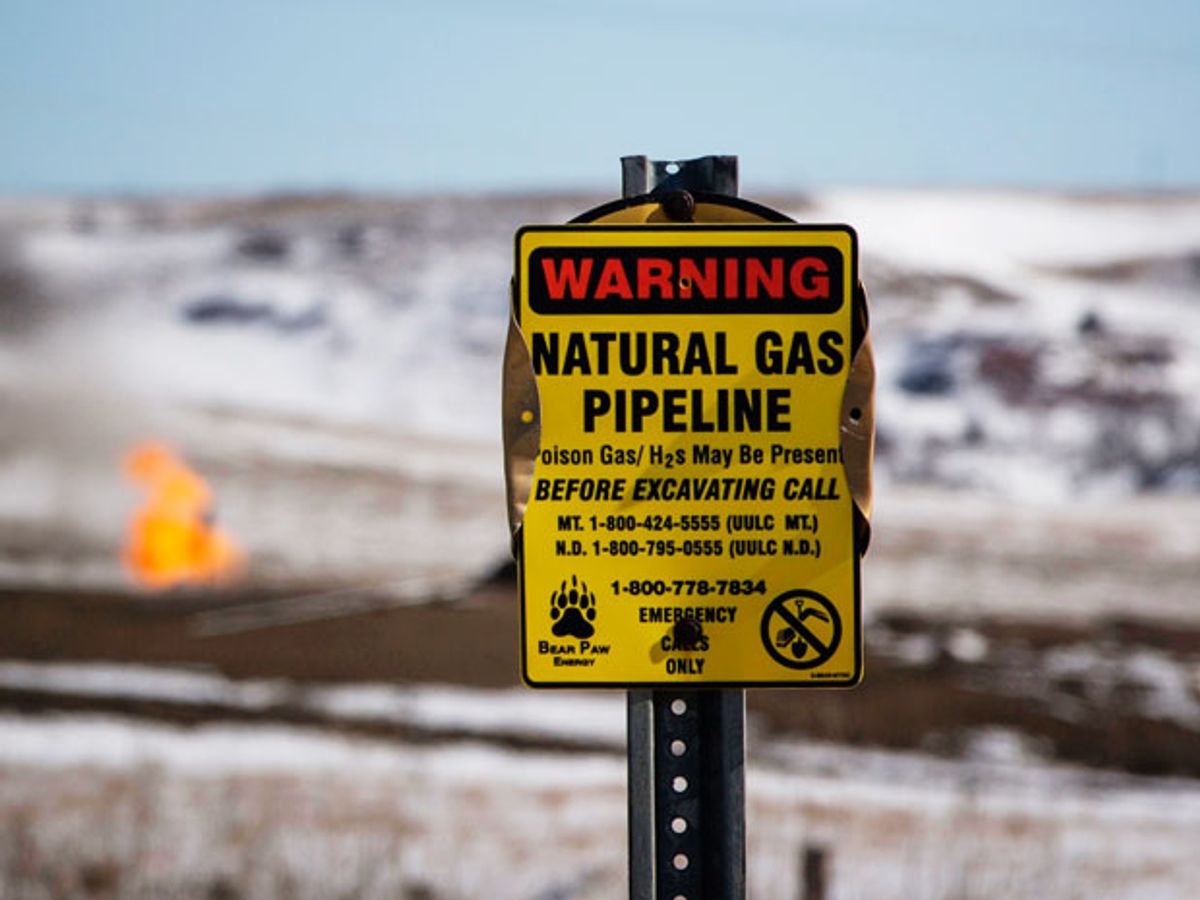Over the past six to eight years, the United States has registered quite dramatic decreases in greenhouse gas emissions, putting the country on track to meet its 2009 Copenhagen pledge (though not its 1997 Kyoto Protocol commitment, which it repudiated). The decreases have primarily been the result of energy companies switching from coal-fired electricity generation to natural gas—partly a spontaneous market reaction to very low U.S. gas prices, and partly a reaction to ever-tightening Federal regulation of coal emissions.
But what if those decreases were only apparent because leakage of methane from gas production, distribution, and use has overinflated the supposed benefits of switching from coal to gas? On average, burning gas rather than coal to make electricity cuts carbon dioxide emissions by about 50 percent; the alleged decline in U.S. greenhouse gas emissions since about 2006 is largely based on that assumption. But methane is a much more potent greenhouse gas than CO2—up to two orders of magnitude, or 100-times, more potent. So if there's a lot of methane leakage, the benefits of switching to gas could be nil, and U.S. claims about making big progress in cutting emissions could be wrong.
Several major studies aimed at addressing this key issue are underway. Perhaps the most ambitious in scope is one being conducted by the Environmental Defense Fund (EDF) in conjunction with 85 academic researchers and natural gas companies. The results of the EDF methane leakage study are to be released next year in peer-reviewed science journals. The study covers production, processing, long-distance distribution, local distribution, and the transportation sector.
A preliminary paper on methane leakage by leaders of the EDF study, published in the Proceedings of the National Academy of Sciences, found that if the Environmental Protection Agency's well-to-city leakage estimate of 2.4 percent is about right, then there is indeed a net benefit from switching to gas. In fact, any leakage rate below 3.2 percent will yield a net benefit, say the EDF authors. But it is important to emphasize—you could say crucial—that the issue here is not merely whether switching from coal to gas produces a benefit; the issue is whether it produces a huge climate benefit, as is generally believed.
If the net effect on greenhouse gas emissions of switching from coal to gas is merely modest, then other factors might tip the balance against gas in a comprehensive cost-benefit analysis: factors such as water impacts of fracking (total water resources, drinking water), ramifications for local communities (traffic congestion, air pollution, property values), and long-term investments in other sources of clean energy (from renewables like wind and solar to nuclear energy). This week, Electrité de France (another EDF!) announced it was terminating nuclear work in the United States because of competition from rock-bottom natural gas prices.
The Environmental Defense Fund's methane leakage study is not the only important one underway. A U.S. Environmental Protection Agency assessment of hydraulic fracturing, also due out next year, may address the question of leakage, according to Anthony R Ingraffea, an engineering professor at Cornell. Writing in the New York Times on Monday, Ingraffea said early drafts of an Energy Department study "suggest that there are huge problems finding enough water for fracturing future wells."
Taking those studies into account, 2014 looks to be shaping up as the year in which we Americans learn whether we're good guys or not such good guys in the global greenhouse gas reduction drama.
Photo: Shannon Stapleton/Reuters



